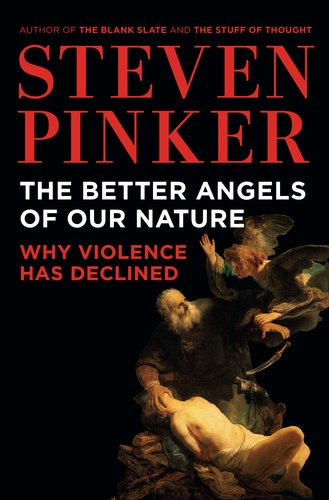In his review of The Better Angels of Our Nature (book's author Steven Pinker) in The New York Times Sunday Book Review, Peter Singer considers the claim that reason is an important factor in the trends towards less violence described in the book
relies in part on the “Flynn effect” — the remarkable finding by the philosopher James Flynn that ever since I.Q. tests were first administered, the scores achieved by those taking the test have been rising. The average I.Q. is, by definition, 100; but to achieve that result, raw test scores have to be standardized. If the average teenager today could go back in time and take an I.Q. test from 1910, he or she would have an I.Q. of 130, which would be better than 98 percent of those taking the test then. Nor is it easy to attribute this rise to improved education, because the aspects of the tests on which scores have risen most do not require a good vocabulary or even mathematical ability, but instead test powers of abstract reasoning. One theory is that we have gotten better at I.Q. tests because we live in a more symbol-rich environment. Flynn himself thinks that the spread of the scientific mode of reasoning has played a role.
Pinker argues that enhanced powers of reasoning give us the ability to detach ourselves from our immediate experience and from our personal or parochial perspective, and frame our ideas in more abstract, universal terms. This in turn leads to better moral commitments, including avoiding violence. It is just this kind of reasoning ability that has improved during the 20th century. He therefore suggests that the 20th century has seen a “moral Flynn effect, in which an accelerating escalator of reason carried us away from impulses that lead to violence” and that this lies behind the long peace, the new peace, and the rights revolution. Among the wide range of evidence he produces in support of that argument is the tidbit that since 1946, there has been a negative correlation between an American president’s I.Q. and the number of battle deaths in wars involving the United States.......
That morality can be grounded in some commitment to treating others as we would like them to treat us is an ancient idea, expressed in the golden rule and in similar thoughts in the moral traditions of many other civilizations, but Pinker is surely right to say that the escalator of reason leads us to it. It is this kind of moral thinking, Pinker points out, that helps us escape traps like the Cuban missile crisis, which, if the fate of the world had been in the hands of leaders under the sway of a different kind of morality — one dominated by ideas of honor and the importance of not backing down — might have been the end of the human story. Fortunately Kennedy and Khrushchev understood the trap they were in and did what was necessary to avoid disaster.The insight, perhaps a guess, that "it is in the minds of men that we must build the defenses of peace" is central to the Constitution of UNESCO and to the subject of this blog. I would hope that Singer is wrong, and that education both contributes to the powers of abstract reasoning and to the knowledge of history and human nature. Reasoning must work on information and if leaders and societies are to reason their ways to peace, so then those leaders and societies should have the information that allows them to conclude that violence is too often futile and the information that allows them to reason their way to peace.
Which is not to quarrel with the importance of the Golden Rule. As Karen Armstrong argues in her book The Great Transformation: The Beginning of Our Religious Traditions, the great religions have the Golden Rule as their base, both as a formula for human relations. She suggests that the great intellects of ancient times saw far too much violence in their times and sought in religious institutions a means to get people to behave humanely towards each other .


No comments:
Post a Comment